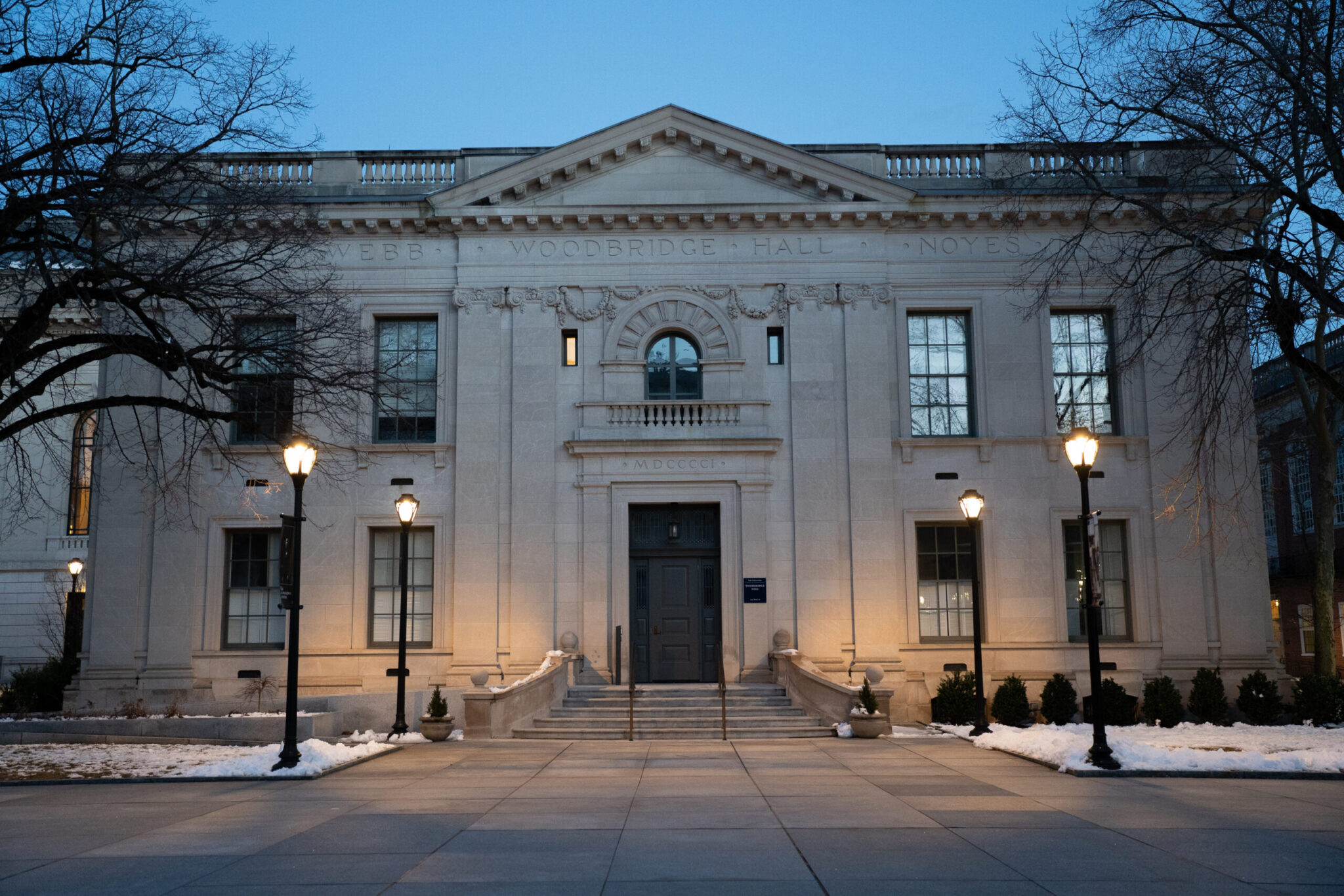Yale faculty sign letter addressed to Yale’s future president, affirms commitment to social justice
The letter — signed by more than 100 faculty members at Yale College, Yale Law School and the Yale School of Medicine, among others — offers six aspirations for Yale’s future president’s tenure.

Ellie Park, Photography Editor
Around 150 Yale faculty have signed a letter addressed to the future president of Yale University.
The letter, which has been active since Feb. 14, has been signed by faculty at Yale College, Yale Law School and the School of Medicine, among others. It offers six aspirations for the upcoming tenure of Yale’s future president, who is yet to be identified.
“We hope that as the next president you will support the continued engagement of our faculty and students in initiatives that affect the world around us,” it reads. “And that you strongly and unequivocally reaffirm the value that Yale sees in the efforts we all put towards environmental, social and civil justice.”
The letter supports, among other priorities, the protection of students’ rights to protest and engage in civil disobedience, diversity and inclusion initiatives and collaboration with community colleges and other universities to expand access to higher education.
The letter comes on the heels of another initiative, “Faculty for Yale,” which calls on Yale to “insist on the primacy of teaching, learning, and research as distinct from advocacy and activism” and argues that Yale is struggling to meet its “most important responsibilities as an academic institution in a clear and consistent way.”
By contrast, the faculty letter seems to come from an opposing ideological standpoint, urging the University to embrace its role as an advocate for causes in social justice and higher education.
While professor Greta LaFleur, who signed the letter, said that it was not intended as a direct response to Faculty for Yale, the letter refers to the group in its opening statement. It claims that American universities must be defended against attacks from “members of their own faculty, who argue that universities have lost their way,” in addition to donors and politicians.
Daniel HoSang, who is a professor of ethnicity, race and migration and of American studies as well as a co-author of the letter, said that it was written in order to “affirm the wide range of extraordinary work happening at our institution that integrates outstanding research, teaching and practice with a robust commitment to the public good.”
One of the letter’s main points urges the future president to continue being a “positive force on the world,” highlighting instances in which Yale faculty have faculty have” translated their academic findings into practice,” such as Yale’s prison education initiatives or the work of Yale Schools of Public Health and Medicine faculties on COVID-19.
Amy Kapcyznki, a law professor and one of the letter’s authors emphasized Yale’s relation to national higher education as one of the “broader themes of the letter.”
“There’s really a need to pay attention to the broader loss of faith in higher education and attacks on higher education across the country.” Kapczynski said. “We don’t just see this as a Yale question, but a need for leadership in higher education more broadly.”
According to Kapczysnki, higher education is under attack partly because “we are a place where people think freely and do important research that sometimes challenges conventional orthodoxies.”
The letter cites educational gag orders that aim to restrict the teaching of certain subjects and censor teachers in both K-12 and higher education, as well as attempts to undermine DEI programs and eliminate certain majors, such as sociology.
Naftali Kaminski, a professor at the School of Medicine who helped author the letter, said that he feels the University is at a critical juncture in its history and can thrive by continuing to affirm the outlined priorities. He highlighted examples of Yale’s engagement with the world over the last ten years, such as global healthcare leadership, commitment to clean energy and climate change mitigation and student activism.
As of Monday evening, the letter has 148 signatories.







